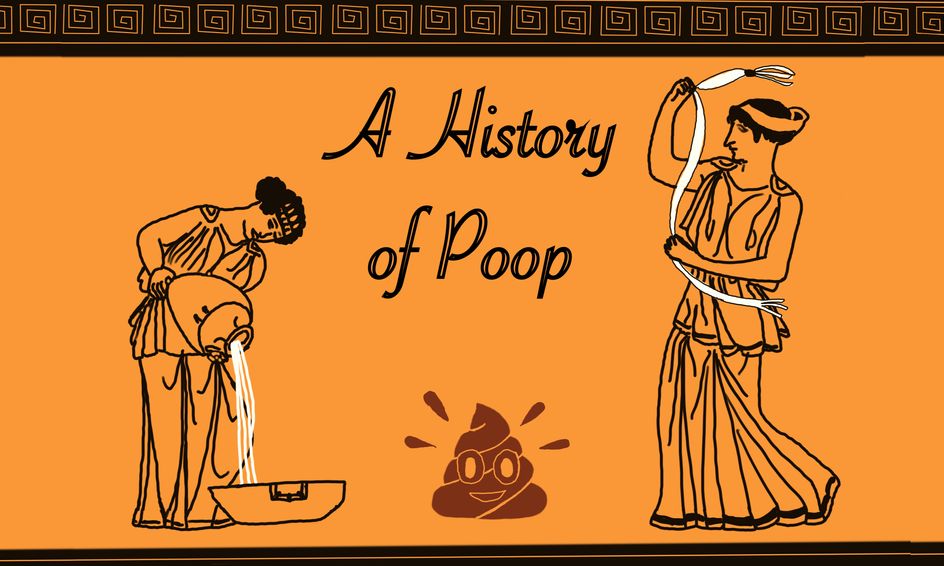Who Discovered the Usefulness of Poo?
Let's talk poop: The fascinating history of how humans discovered the usefulness of waste
Source outschool.com
Who Invented Poo?
When it comes to who invented poo, it's important to understand what poo really is. Poo, also known as feces or stool, is the waste material that comes out of the digestive system of animals. It's made up of undigested food, bacteria, and other waste material that the body needs to get rid of.
What is Poo?
Poo is the solid or semi-solid waste material that is eliminated from the digestive tract of animals. The digestive system breaks down food into nutrients that the body can use. However, not all of the food can be absorbed, and these leftovers are excreted as poo.
Poo comes in all shapes, sizes, and colors depending on the animal and their diet. Healthy poo should be brown in color, firm in texture, and have a slightly unpleasant odor, but not an overwhelmingly bad smell.
History of Poo
The history of poo dates back to the beginning of life on earth. Single-celled organisms, such as bacteria, excreted waste as part of their natural process. However, the invention of modern poo can be attributed to the evolution of multicellular animals.
As animals evolved, their digestive systems became more complex and specialized, leading to the production of different types of poo. For example, herbivores produce larger amounts of poo due to the high fiber content in their diet, while carnivores produce smaller, denser poo because their diet is more easily digestible.
Scientists Involved in Studying Poo
Over the years, many scientists have dedicated their time to the study of poo. Their research has resulted in a better understanding of the composition, texture, and smell of poo, helping with the diagnosis and treatment of certain gastrointestinal disorders.
One notable scientist who studied poo is Carl Linnaeus. He was the first scientist to classify animals based on their excreta, including poo. He believed that the appearance of poo could offer insight into an animal's health and classification.
Another scientist who made significant contributions to the study of poo is Benjamin Ward Richardson. He conducted extensive research on the digestive system and how it produces poo. He was able to identify the different types of food that affect the odor and texture of poo.
In conclusion, while it's impossible to pinpoint who exactly invented poo, the history and study of this natural process have contributed greatly to the understanding of the animal kingdom and human health.
While investigating the history of inventions, you might also be interested to know was video recording invented earlier?
The Future of Poo
Poo as a Source of Energy
Did you know that poo has the potential to become a source of energy? Yes, you heard it right! Researchers have been exploring the possibility of harnessing the power of bacteria found in poo to generate electricity through microbial fuel cell (MFC) technology.
The concept of using animal or crop waste to produce energy is not new, but the use of human waste as a source of energy is a relatively recent development. MFC technology is a promising solution to provide sustainable energy to remote areas where there is no access to traditional power sources or to help in waste management by utilizing an abundant and often overlooked resource – poo.
Aside from generating energy, MFC technology also has other benefits, such as producing clean water, reducing greenhouse gas emissions, and reducing the reliance on fossil fuels.
Poo as a Diagnostic Tool
As gross as it may sound, the analysis of poo can reveal a lot about a person's health status. Poo contains a diverse collection of microorganisms that can indicate various health conditions, including gut health and diseases like colon cancer, irritable bowel syndrome, and Crohn's disease.
Traditionally, the analysis of poo has been done through a process called stool culture. However, this method is time-consuming, labor-intensive, and has limited diagnostic value. Recently, a new technique called metagenomics has made analyzing poo much easier and more accurate. It involves analyzing the entire DNA content of the poo sample to identify the microbes present.
Thanks to this development, doctors can detect and diagnose diseases earlier, leading to better treatment outcomes and ultimately saving lives.
Poo as Fertilizer
Another way poo can be beneficial to us is through its use as fertilizer. Poo is an excellent source of nutrients for plants as it contains organic matter, nitrogen, and other essential elements. Its use as a fertilizer can help reduce environmental pollution by diverting waste from landfills and incineration facilities. At the same time, it can improve soil fertility by adding nutrients and improving soil structure.
Many countries around the world are promoting the use of poo as a fertilizer to support sustainable agriculture. For example, Japan has been using a technique called "night soil" for centuries, which involves using human poo to fertilize crops. Similarly, Singapore has implemented a program called the "NEWater and Biosolids" program, which involves treating wastewater and converting it into high-grade reclaimed water and nutrient-rich biosolids that can be used as fertilizer.
While the idea of using poo as fertilizer may be unsettling for some, it is a practical solution to address waste management and food security issues. It is a sustainable way to close the nutrient cycle and reduce waste while supporting agricultural production.
Who would have thought that poo, once regarded as nothing more than waste, could have so many potential uses? As we continue to explore and discover the benefits of poo, let us hope that we can harness its full potential to create a more sustainable and healthier world.
It's not a question you'd expect to ask, but have you ever wondered who developed the first tractor in history?





Post a Comment for "Who Discovered the Usefulness of Poo?"